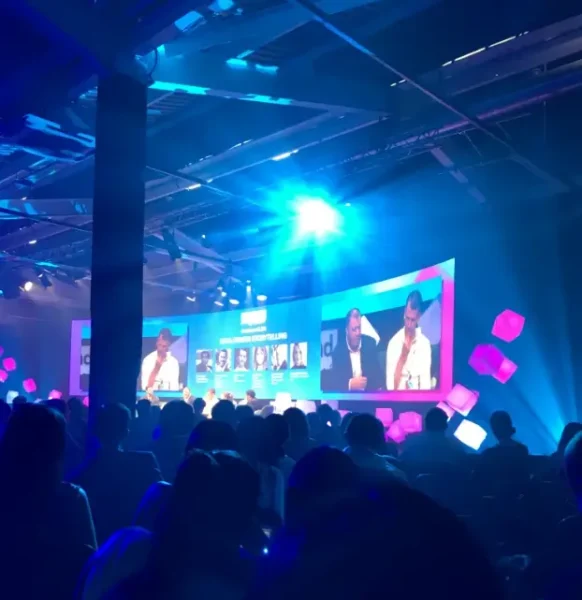When it comes to innovation, context is king

Innovation should inspire teams, evolve systems and help us take giant leaps forward in the way we live our lives. Innovation is supposed to be useful, seamlessly integrate into our lives and give us our precious time back.
Innovation does all of these things when done well.
When done wrong it does the opposite of all of the above and creates a lack of trust and cynicism that, to be honest, we’ve all experienced first-hand.
Unbound 2018, a ‘celebration of innovation’, taught me a few valuable lessons that we should all think carefully about to avoid being a company that over-promises and under-delivers.
Don’t be blinded by all of the data
Rory Sutherland, of Ogilvy-and-industry-fame, walked onto stage with the task of talking about behavioural economics to sum up the state of advertising, marketing and ‘data-driven’ culture.
What data is great at is providing us with insight. It’s predictive and logical, and gives us an amazing view of what might be going on. As good though as data might be at predicting, if we all follow the same logic we’ll all end up in the same place.
Rory cited a great example about Coca-Cola – the number one soft drink company. To logically beat Coca-Cola, you’d go for a cheaper product in a bigger can. If all companies thought like that, you’d end up with a market full of big, cheap soft drinks. What happens when you buck that trend? Well, you end up with the only true long-term contender to Coca-Cola. Red Bull. A product that is more expensive in a smaller can. Where’s the logic in that?
Context is king
The problem with data is that it comes from the past and too much of it makes you miss the most important insights. The art of data-driven creativity is the collision of insights from people, data and context.
If you ignore context you will believe that all ‘gen Z’ers’ will be more competitive and resourceful than ‘millennials’ and to nurture a millennial, you should put them in a team to collaborate, the opposite of what a Gen Z strives for to succeed. (For what it’s worth, we don’t believe in this type of broad segmentation, everyone is different, and we shouldn’t put anyone in a group just because we’re told we have to). We would, therefore, segment based on when they were born, not who they are.
In truth, there is no such thing as a homogenous community. That is where understanding who you are trying to engage with is so important. Where did they grow up; what job do they have; where did they go to school; what’s their favourite brand etc. All of this context changes our perception of who they are and how we might create a programme that is engaging for all who interact with it…and importantly, is truly innovative.
We find ourselves at an interesting point in the way we access information. We’re all picky, and we all know what we want, but innovation can only be innovation if people engage with it.
Innovation then is not about tech or transformation, but about thinking a little differently about how tools and people come together to make a real difference. Deep down, we all know this is true, but hearing it from brands like Lego, Bupa, Unilever and Channel 4 was a really nice reminder that the needs of people must come first.
At Aurora, we don’t just believe that insight helps fuel campaigns, but can help drive strategies that show we have made a real difference. Pop me an email, it’d be great to speak about how we can do this together.


